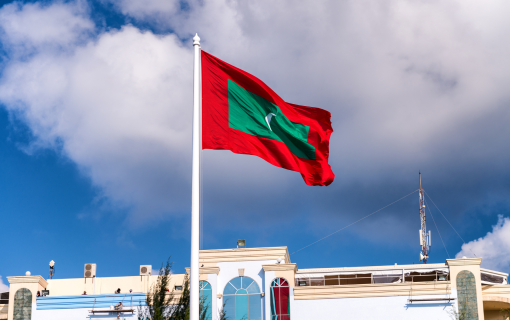First Reports of Cambodia’s Commune Council Elections Positive
Cambodia held elections for the Commune Council on June 3, 2012. Elections for these local governing bodies are considered indicators of public opinion ahead of the 2013 National Assembly elections.
While international observers did not monitor the poll, national observers reported it to be one of the smoothest elections Cambodia has held in over a decade. Robert Patterson, IFES chief of party in Cambodia, talks to us about Election Day and IFES’ role in the country.
IFES: How was Election Day?
Patterson: According to early reports from the media, voters, the National Election Committee (NEC) and national election observers, Election Day was the smoothest since 1998. Koul Panha, executive director of the election monitoring organization Committee for Free and Fair Elections in Cambodia, said the election went smoothly but with reports of irregularities at polling stations.
For example, some voters could not find their names on the voter list and local authorities were in the vicinity of polling stations – which could be an intimidating factor to voters. Other than that, we do not have much information right now since there were no international observation missions and the national monitoring organizations were not able to cover a majority of the polling stations.
IFES: What was the turnout and how does it compare to other such elections?
Patterson: According to preliminary results released by the National Election Committee on election night, the overall national voter turnout was 60 percent.
For the 2007 Commune Council elections, the turnout was 66 percent; for 2002 it was 87 percent.
The National Assembly elections in 2008 had a 75 percent turnout.
IFES: What is the role of Commune Councils?
Patterson: The responsibilities of the Commune Councils are to engage in dispute resolution; plan and implement development projects; provide agency functions for the central and provincial governments; and conduct advocacy.
Development activities consist mainly of small-scale infrastructure and public works projects, most notably involving roads and irrigation. Mediation activities address local disputes, such as repayment of individual loans and the location of land markers. Advocacy issues tend to be more complex, involving the application of pressure on government officials or problems that cross commune boundaries, which require inter-commune collaboration.
IFES: When will the newly elected take office?
Patterson: Official results will be announced on June 24 and the new councils are to hold their first meeting 14 days after this announcement on July 8.
IFES: IFES recently signed a memorandum of understanding (MoU) with Cambodia's election commission to help with capacity building, voter education and voter registration. In what ways did IFES help in this election?
Patterson: The MoU between the NEC and IFES is targeted at the 2013 National Assembly elections, so there was not much direct engagement with the NEC for these Commune Council elections. However, through our women’s leadership program we have trained 280 women in eight provinces to be election officials. Due to this training, their respective provincial election commissions have committed to recruit these women for the positions of election officials.
IFES: About a year ago, Cambodia was debating introducing public funding of political campaigns. What was the result of the deliberation?
Patterson: A non-governmental organization, Working Group on Political Finance, was created with technical and financial support from IFES to advocate for campaign finance reform, including looking at public funding.
Discussions have been held with political parties and they recently signed a public document calling for a new campaign finance law. Parties are planning to introduce a draft law to the National Assembly by the end of 2012.









